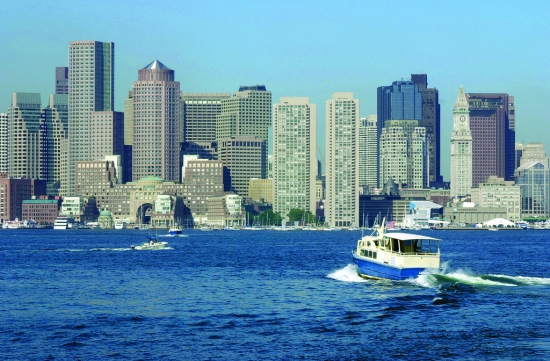The office market in Boston has almost returned to pre-recession rates as take-up improves, driving up rents.

Within the past three months, the average price of rents in Boston has increased to $46.26 per sq ft, representing an increase of 16 per cent in the market compared to three years ago, according to figures released by Jones Lang LaSalle.
Several large corporations have moved into the city’s downtown area, and more companies are building large office buildings.
The activity in Beantown’s office market has lowered the city’s vacancy rate to single digit territory for the first time since 2009.
According to Frank Petz, the managing director for Jones Lang LaSalle, breaking the 10 per cent threshold means developers start to become more confident about building again. He recently stated that there are a number of “speculative building projects under consideration” in Boston.
The office market hit a low point in the middle of 2010. At that time, the average price for rents slid to below $40.00 per sq ft. Conditions stayed sluggish through several quarters before picking up last year. Companies signed leases for an additional 1.6 million sq ft of office space in the 12-month period – approximately three times the amount of volume for an average year.
A number of office blocks are currently under construction in Boston and Cambridge. Ariad Pharmaceuticals, Novartis AG and Biogen Idec will move into new buildings in Kendall Square. Liberty Mutual will occupy a soon-to-be finished tower in the Back Bay. Converse has announced plans to move its office to a renovated building at Lovejoy Wharf near North Station.
A number of real estate specialists have commented that Boston is reaping the benefits of a trend towards urbanization, with a number of companies choosing to relocate into the city to be closer to their workforce. Glenn Verrette, from the real estate firm of Cassidy Turley, observes that the business landscape in the Boston area is changing, with several businesses from other areas moving into the area.
The city has developed a reputation as a talent hub, and has several new residential towers currently under construction. Thousands of new residents have flocked to the city as a result, leading to a revitalization of outdated commercial districts.
The lack of available office space is making more companies consider new construction for their needs. The law firm of Goodwin Procter considered several existing locations before deciding to move into a new building to be built in Fan Pier in the Innovation District.
The development arm of Skanska USA is reportedly planning to build another large office building in the Innovation District. To date, no tenants have been announced.
According to Petz, “The fact that people are spending money now is a significant mental shift. There’s a lot more fortitude now.”
No related posts found for this post.